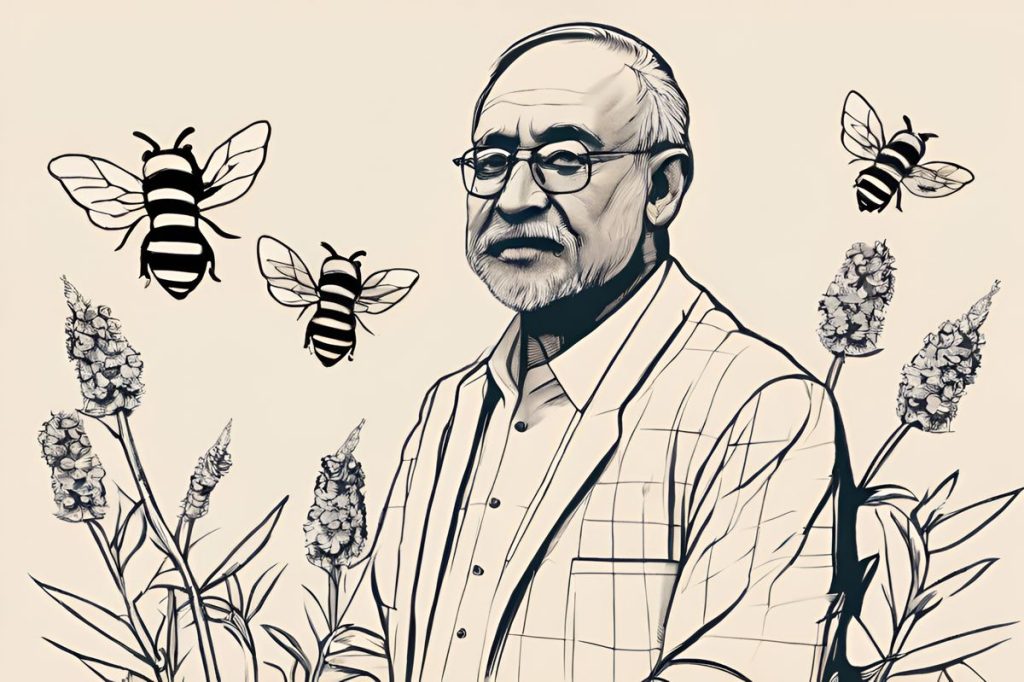A campaign for bee protection has been launched, led by Agriculture Minister Maria Panayiotou, focusing on reducing pesticide use and promoting sustainable farming practices. With an annual beekeeping support budget of €340,000, strategic planning, and public awareness initiatives, the initiative aims to highlight the vital role bees play in preserving ecosystems and human well-being.
What is being done to protect bees and their role in ecosystems?
To protect bees, the EU has integrated pollinator protection into the European Green Deal, focusing on reducing pesticide use. National action plans support sustainable pesticide usage and promote alternatives. Farmers receive strategic support, including habitat conservation and “biodiversity islands,” backed by a €340,000 annual beekeeping support budget. Public awareness campaigns and educational initiatives further emphasize the importance of bees in maintaining ecosystem health and biodiversity.
A Buzzing Start
In a bid to safeguard the future of bees, Agriculture Minister Maria Panayiotou inaugurated an impactful campaign on a sunny Friday morning. This initiative, originating from the collective minds at the Institute of Professional Studies (IPS) at UCLan Cyprus University, puts a spotlight on bees’ critical role in our ecosystem and their substantial contributions to human well-being. Panayiotou spotlighted the global recognition of bees’ significance, noting that the United Nations has marked May 20 as World Bee Day, an annual reminder to raise awareness about bees.
World Bee Day isn’t just about celebration; it’s a call to action. It educates the public on the threats bees face and emphasizes their role in combating food scarcity and supporting poverty alleviation in developing regions. These tiny pollinators have a giant role to play in our survival, and Panayiotou’s words serve as a reminder of this often overlooked fact.
EU’s Commitment to Pollinators
The European Union has not turned a blind eye to the plight of these crucial insects. Within the ambitious European Green Deal, the protection of pollinators stands as a key component. The EU has recognized the pressing need to address the alarming decline in pollinator populations, attributed to intensified agricultural practices and rampant pesticide use.
Panayiotou outlined her ministry’s multifaceted approach to combat these trends. A national action plan for sustainable pesticide usage is being enforced, demanding that individuals who use pesticides undergo mandatory training and only resort to chemical solutions when all other methods fail. This is a significant stride towards a more responsible and eco-conscious approach to farming.
Empowering Farmers and Educating the Public
Supporting farmers through strategic planning is essential to stem the loss of pollinators. The plan includes promoting alternatives to pesticides, conserving habitats, and enhancing biodiversity by creating “biodiversity islands.” The ministry has also committed an annual budget of €340,000 to support beekeeping, underscoring the economic and ecological importance of this sector.
However, protecting bees isn’t only about regulations and funding. It’s also about public awareness. Panayiotou emphasized the importance of teaching the public, especially the young minds, about the critical role pollinators play. Collaborations with associations like the Cyprus Beekeepers Association have led to informative sessions in educational institutions, reaching thousands of students and planting the seeds for a future that respects and protects our buzzing allies.
A Connected Ecosystem
Bees, as pollinators, are intertwined with the health of our entire ecosystem. They are responsible for the successful reproduction of many plants, which in turn support a diverse range of life forms. The campaign launched by Minister Panayiotou serves as a reminder that human actions can have a profound impact on these tiny creatures, whose tireless work underpins the food chains and natural processes we often take for granted.
The commitment to bee protection echoes a broader theme of environmental stewardship. It represents an understanding that the preservation of biodiversity is not just about saving a single species, but about maintaining the intricate balance of nature that sustains life on Earth. By protecting bees, we are taking a step towards ensuring the resilience and richness of our natural world for generations to come.
What is the EU doing to protect bees and their role in ecosystems?
The EU has integrated pollinator protection into the European Green Deal, focusing on reducing pesticide use. National action plans support sustainable pesticide usage and promote alternatives. Farmers receive strategic support, including habitat conservation and “biodiversity islands,” backed by a €340,000 annual beekeeping support budget. Public awareness campaigns and educational initiatives further emphasize the importance of bees in maintaining ecosystem health and biodiversity.
How is the campaign for bee protection in Cyprus being led?
Agriculture Minister Maria Panayiotou has launched a campaign for bee protection in Cyprus, highlighting the importance of reducing pesticide use and promoting sustainable farming practices. With a focus on strategic planning, public awareness initiatives, and an annual beekeeping support budget of €340,000, the initiative aims to showcase the crucial role bees play in preserving ecosystems and human well-being.
Why is protecting bees important for the environment and human well-being?
Bees play a vital role in maintaining ecosystem health by pollinating plants, which in turn support a diverse range of life forms. From food production to biodiversity preservation, bees contribute significantly to human well-being. Protecting bees ensures the sustainability of ecosystems and the services they provide, highlighting the interconnectedness of all living beings.
How can individuals contribute to bee protection efforts?
Individuals can support bee protection efforts by promoting pollinator-friendly practices in their gardens or communities, such as planting bee-friendly flowers, avoiding the use of pesticides, and providing nesting habitats for bees. Supporting local beekeepers, advocating for sustainable agricultural practices, and raising awareness about the importance of bees in ecosystems are also impactful ways to contribute to bee protection.

